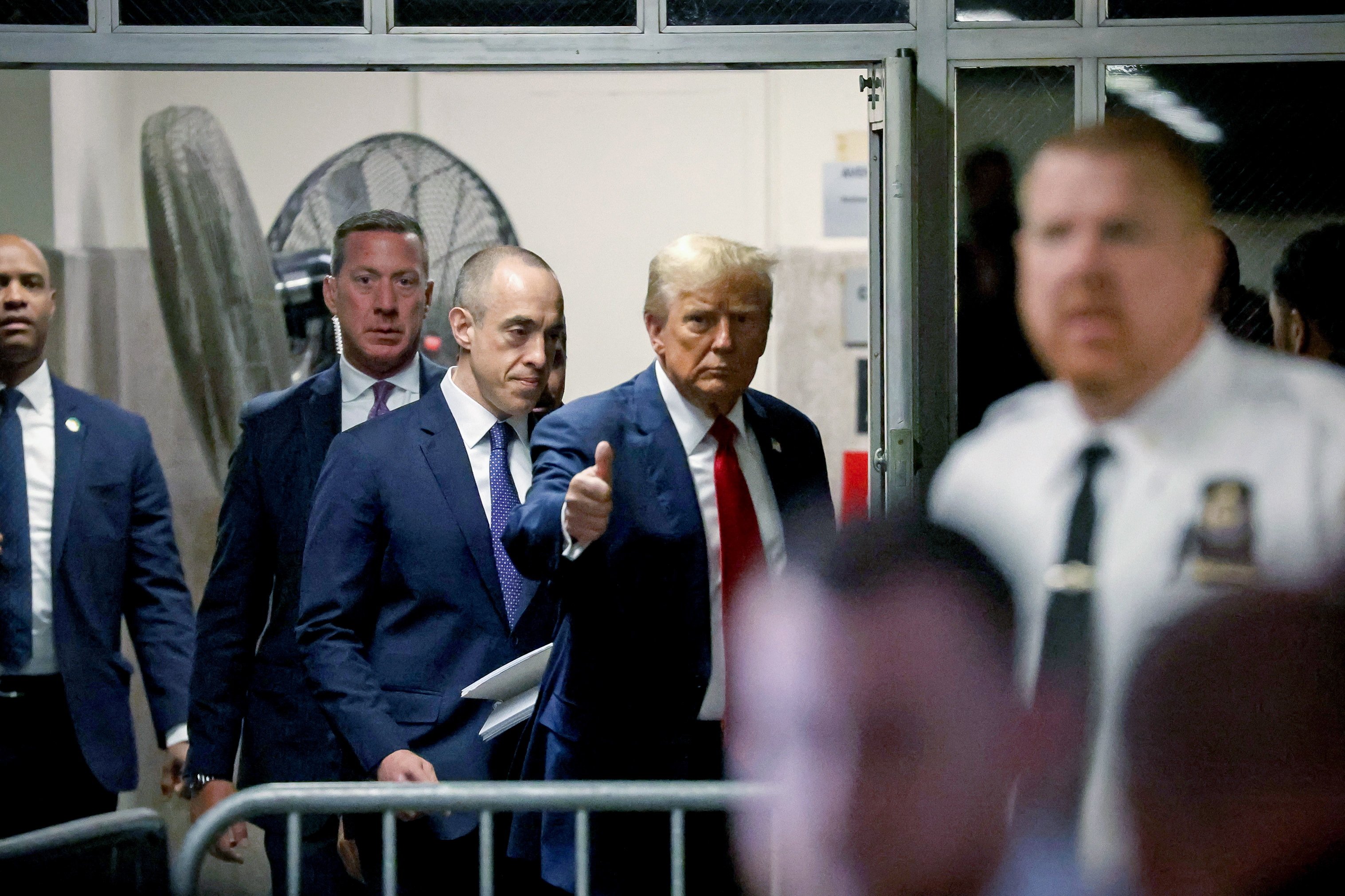Updated
Ex-publisher Pecker Testifies About Deals Made in Trump Trial
Save

Former President Donald Trump returns to the courtroom during his trial for allegedly covering up hush money payments at Manhattan Criminal Court on April 25, 2024 in New York City. Photo by Jefferson Siegel-Pool/Getty Images
Here is the latest
•
Trump Says Testimony 'Breathtaking'
•
Pecker Initially Misremembered Meeting Date
•
Pecker First Flagged Negative Trump Story in 1998
•
Defense Cross-Examines Pecker
•
Pecker Says Trump Was His 'Mentor'